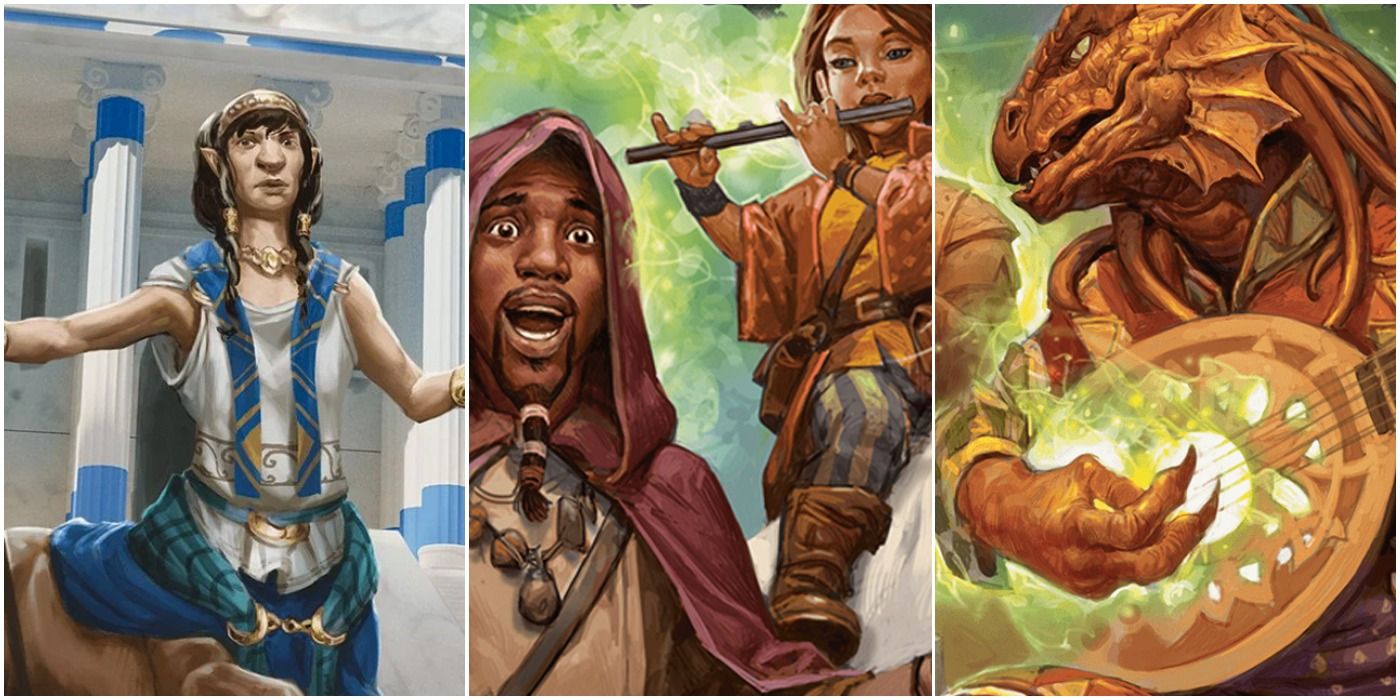
It's time to bring a little creative flair to the Dungeons & Dragons party, and that means exploring the best way to build a Bard. The Bard is a classic combination class, a jack-of-all-trades that can fill almost any role. Their strength is in their versatility and, of course, their ability to talk the party out of sticky social situations. With tons of combat skills and spell options, a Bard can round out any party in a number of ways.
RELATED: Dungeons & Dragons: Best & Worst Things About Playing A Bard
Of course, players looking to make a Bard in D&D 5e should keep in mind that a Bard's best party contribution in combat, regardless of their build, is as a supporting character. In dialogue, the natural charm of the Bard means they're probably the leader or the face of the group. In combat, they're best suited to buffing up allies and hobbling enemies with spells, so that another member of the group can go in for the kill.
Updated on August 4th, 2021 by Kristy Ambrose: The popularity and utility of the Bard class have grown since the earlier days of RPGs. Once maligned and misunderstood, Bards have emerged as a class that can do anything short of leading the party into battle. These days, even that might be a possible build if someone has includes improved AC or melee weapon abilities. Other options would be a homebrew build or a multiclass Bard, and that depends on the module the person is playing and the Dungeon Master who is conducting the game.
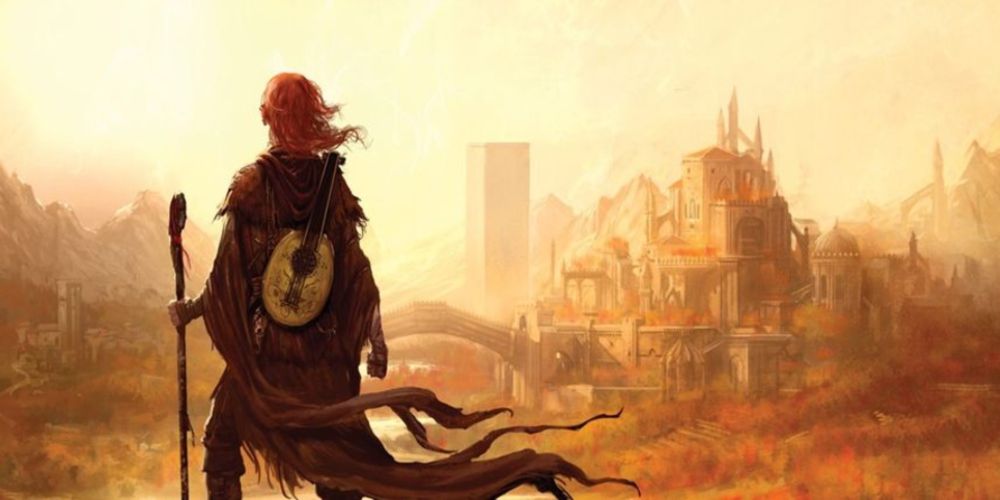
Let's start with the best races for playing a Bard. Unsurprisingly, they're all races with some sort of bonus to Charisma, which is the Bard's main ability score.
- Half-elves.+2 bonus to Charisma and +1 to two other attributes of the player's choice. Plus, with Darkvision, extra skills, and Advantage against being charmed.
- Variant Humans. Available in the Eberron – Rising from the Last War module. Dexterity score increases by 2 and one other Ability Score of the user's choice increases by 1.
- Tieflings. +2 to Charisma and +1 to Intelligence, a nice combination if a person is thinking of multiclassing with another spellcaster.
- Aasimar. Available in Volo's Guide to Monsters, +2 to Charisma, and +1 to Intelligence.
- Lightfoot Halfling. One of the two Halfing subraces, this one gets bonuses to Charisma and Dexterity.
- Drow Elf. Unlisted in the regular Player's Handbook but a playable race since the 1990s and also gets bonuses to Charisma and Dexterity.
- Triton. Available in Volo's Guide to Monsters, +1 to Charisma. For those eyeing the College of Valor subclass, a Triton is a perfect fit.
RELATED: Dungeons and Dragons: 8 Playable Races Outside The Player's Handbook
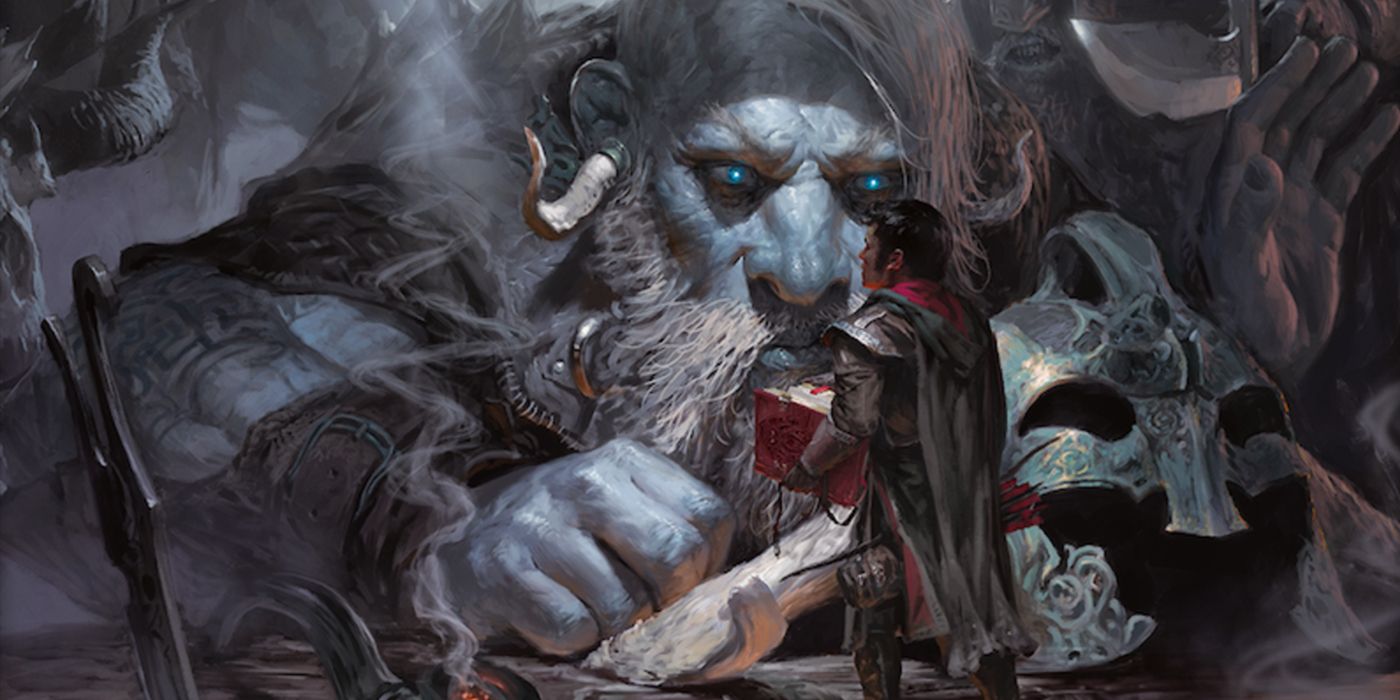
Charisma
It's already been said that a Bard needs to ooze charm to be effective, so it shouldn't be surprising that a bard's highest stat should most definitely be Charisma. If the Bard starts the game with their Charisma score below a 20, then the player should focus on getting them there through gaining levels.
Dexterity
The second-highest stat roll should go to Dexterity. It boosts attack, initiative, and AC, and since Bards don't usually wear heavy armor, they'll need that naturally high AC in a fight.
Constitution
The next-highest ability score should be Constitution. It's nearly as important as Dexterity, given that Constitution dictates the number of hit points a character has. That's a perk that any class would find valuable.
Wisdom
Wisdom is not a priority for a Bard in the least. However, given the number of spells that call for a Wisdom saving throw, not to mention the skills this stat boosts, it shouldn't be a dump stat either.
Intelligence
Speaking of the dump stat, let's talk about the two remaining ability scores to be assigned. Players will have a choice as to the second-lowest stat and which is the dump stat. Generally, Intelligence is considered the best stat for Bards and other Charisma-based casters to dump, but it doesn't necessarily have to be.
Strength
If someone wants their Bard to have a halfway decent Arcana skill, consider making Strength the dump stat instead. Only those who want a more Strength-based build or multiclassing into Fighter or Paladin absolutely need to put Intelligence last. Besides that, it's really the player's choice.
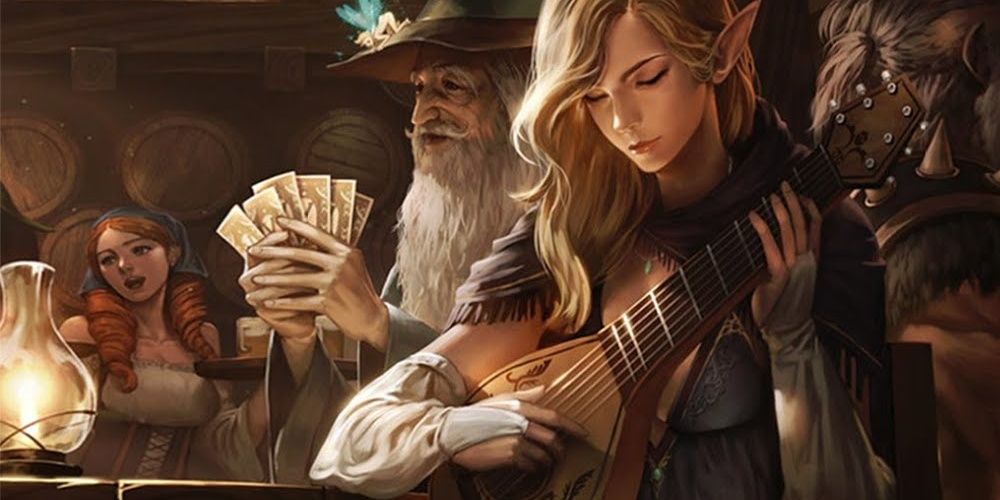
Bardic subclasses are divided into different Colleges. We've ranked the ones that are currently available in The D&D Player's Handbook but this list doesn't include homebrew ideas and other creations from expansions and supplemental materials.
Players should feel free to explore any of these Colleges. When considering the best Bardic build in D&D, there are some colleges that are more convenient when it comes to gameplay, but creative players shouldn't be discouraged if they want to create something unique.
- Source: D&D Player's Handbook
- Unique Abilities: Three bonus proficiencies and Additional Magical Secrets, which allows you to cast spells from other classes.
- Signature Spell: Cutting Words, which lets the bard insult enemies into failing on their attacks.
- Party Role: A superior spellcaster for both Damage and Support.
- Source: Xanathar's Guide to Everything
- Unique Abilities: Focus on controlling the battlefield and deceiving the enemy.
- Signature Spells: Mantle of Majesty, which lets the bard cast Command on a bonus action, and Unbreakable Majesty. Both make enemies unable to hit the Bard and gives them Disadvantage against the Bard's saving throws.
- Party Role: Support, with some spellcasting for Damage.
RELATED: Dungeons & Dragons: Best Magic Items for Rogues
- Source: D&D Player's Handbook
- Unique Abilities: The ability to partake in melee damage, ideal for Bards that have multi- or dual-classed into martial classes.
- Signature Spell: Combat Inspiration, which is similar to Cutting Words, but the enemy has to make a saving roll instead of the player.
- Party Role: Damage and Defense; one of the few Colleges for fighting Bards.
- Source: Tasha's Cauldron of Everything
- Unique Abilities: Mote of Potential, the ability to create and animate objects.
- Signature Spell: Animating Performance, which allows the player to summon and control a dancing creature that is also a battle pet for one hour.
- Party Role: Support and Damage; the powers of this Bard are more about transportation, removing obstacles, and creating diversions on the battlefield.
RELATED: Dungeons & Dragons 5e: Best Magic Items for Bards
- Source: Xanathar's Guide to Everything
- Unique Abilities: Offensive swordplay and a variety of melee combat skills and the Fighting Style ability. The Bard College for pirates and swashbucklers.
- Signature Spell: Blade Flourish, more of an ability than a spell, is the distinct feature of this class.
- Party Role: Damage, primarily melee, with little spell utility other than cantrips.
- Source: Xanathar's Guide to Everything
- Unique Abilities: This College focuses on charm and intrigue, so it's ideal for modules that feature dungeon crawling or political maneuvers.
- Signature Spell: Shadow Lore, a higher level ability that allows players to Charm virtually anyone or anything.
- Party Role: Almost exclusively Support depending on Background and Skills.
- Source: Mystic Odysseys of Theros, Tasha's Cauldron of Everything
- Unique Abilities: Emphasis on the Bard's oration abilities, with Silver Tongue and Unfailing Inspiration.
- Signature Spell: Unfailing Inspiration, which is connected to the player's Bardic Inspiration and makes it almost impossible to fail a Charisma-based saving throw.
- Party Role: Support and Defense; probably the best role for the party leader or a Bard that is multiclassing into a Paladin.
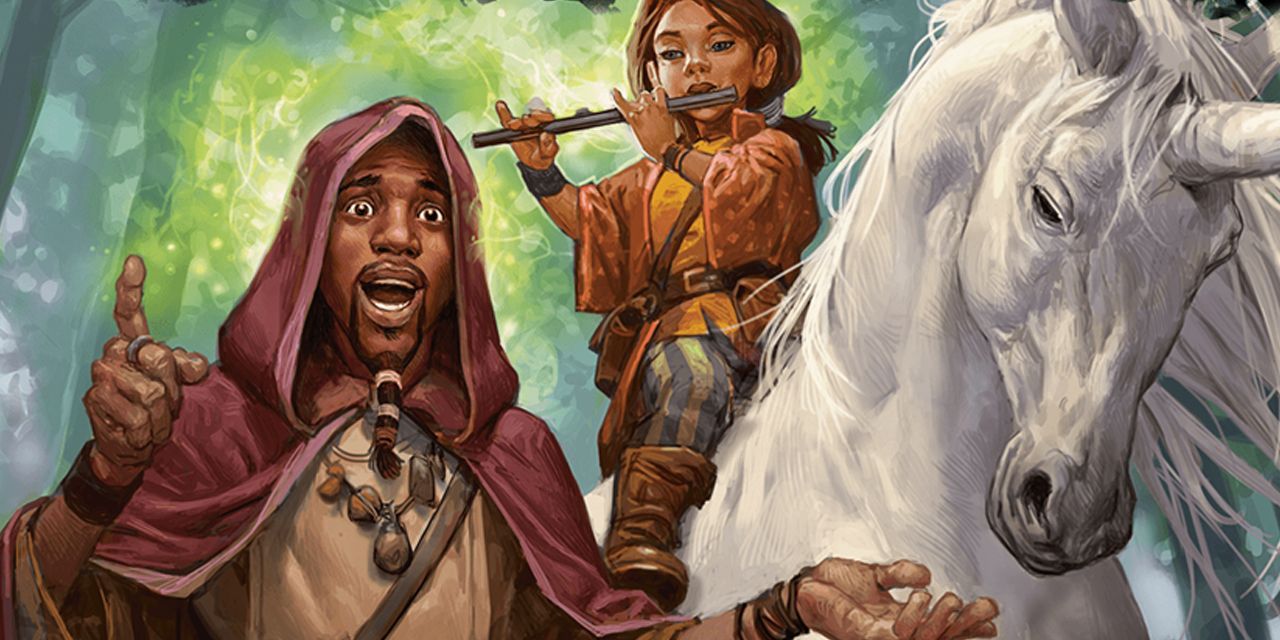
- Minor Illusion. A cantrip that allows the Bard to produce almost any illusory effect.
- Vicious Mockery. A cantrip that gives Disadvantage to the player's enemies, also great for RP.
- Detect Magic. A first-level spell that's useful in various settings, from a posh dinner to a grotty prison.
- Healing Ward. A first-level spell that's essential if someone is building a healer or support character.
- Deception. Charisma-based, useful in both diplomatic situations and combat.
- Persuasion. Charisma-based, this Skill is essential if the player is the leader of a party.
- Performance. Charisma-based, fairly obvious for any class that relies on public appearances.
- Perception. Wisdom-based, so not a winner for all Bards but useful as players will be rolling for Perception fairly often.
- Arcana. Intelligence-based, one of the most useful skills, helps memorize and recognize spells.
RELATED: Dungeons & Dragons: 10 Underrated Feats That Players Should Consider Taking
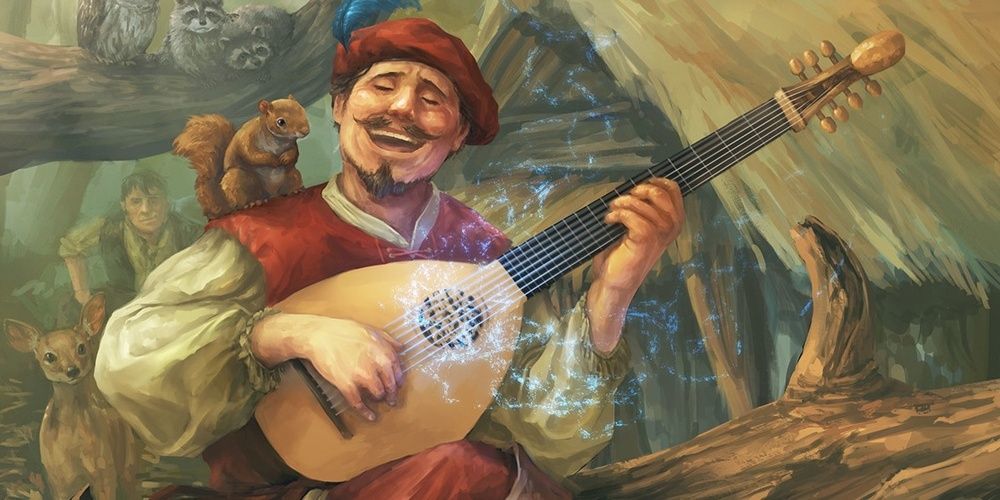
- Actor. A good choice for players who want a Feat rather than the ability score increase, but still need to bump their bard's charisma up a point.
- War Caster. Great for both Valor and Lore bards who need a bonus to their concentration and some expanded attack of opportunity options.
- Inspiring Leader. Gives the Bard extra hit points, ideal for those who lead their party into battle or tend to draw attention as healers.
- Magic Initiate. Choose two cantrips from other classes, a handy way to get extra spellcasting abilities to customize your character's role.
- Charlatan. Combines nicely with other Bardic skills like Actor and Persuasion.
- Courtier. Ideal for those with an upper-class background or diplomatic ties also grants the use of one extra language.
- Entertainer. Obvious for the Bard but might be redundant depending on the player's choice of College.
- Faction Agent. Similar to a spy, this Bard could adhere to a certain ideology or work for a specific political entity.
NEXT: Dungeons & Dragons: Rules That Should Be Tweaked (And How To Do It)

